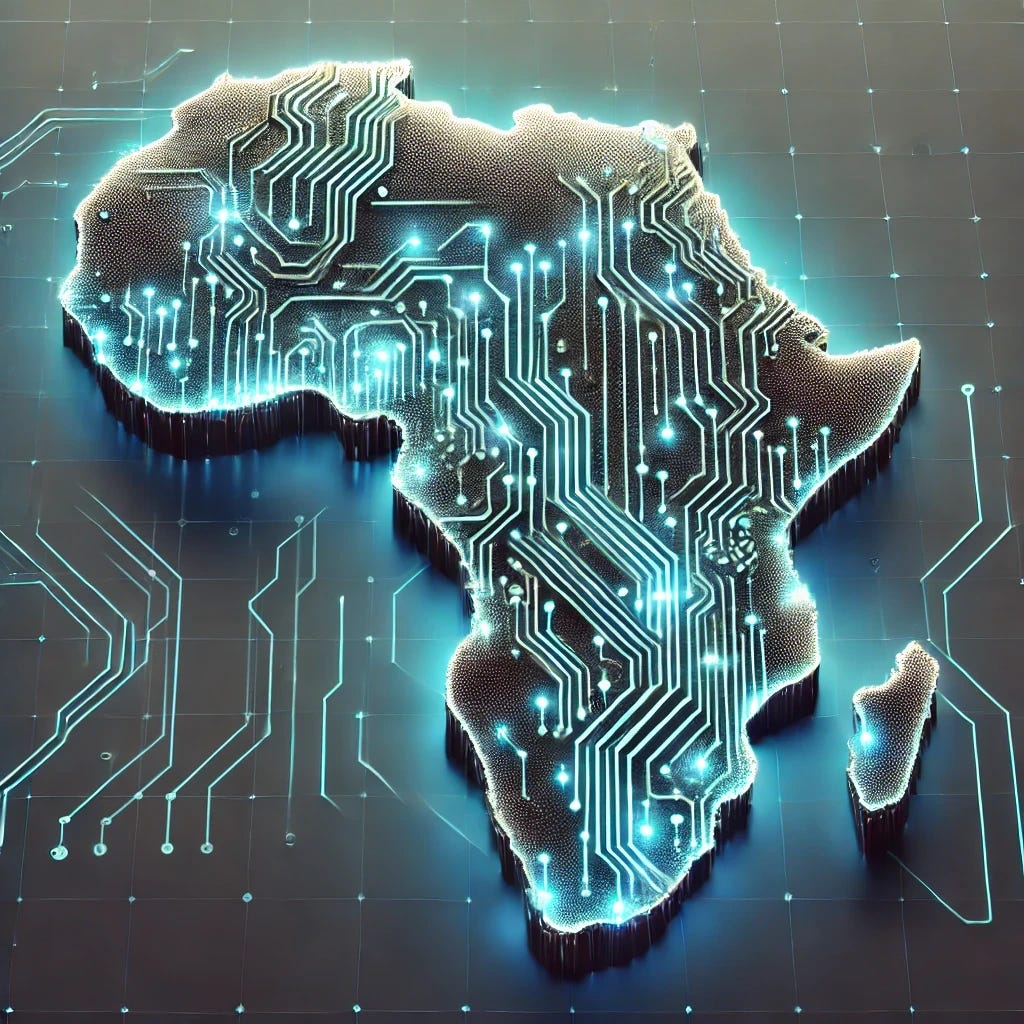Global Assault on Public Interest Journalism and the Fight for Digital Sovereignty
Industrial-scale misinformation about South Africa's laws on land and black empowerment
With President Trump’s unfounded and bizarre executive order still ringing in our ears, it may seem quaint that the South African media sector is impatiently awaiting the Competition Commission’s Media and Digital Platforms Market Inquiry (MDPMI) provisional report. Quaint or not, here we are—an African democracy waiting for an independent regulator’s decision on whether U.S. tech giants like Google and Meta have distorted competition and accelerated the market failure of news media in South Africa (SA). And, crucially, if the Commission finds anti-competitive conduct, what remedies will be proposed?1
SA’s politicians have been unusually united in rejecting the premise of Trump’s executive order. Yet, as Africans, we can’t look away from Washington—because we know state capture when we see it. And what’s unfolding in the U.S. is not just familiar; it’s the most audacious state capture project the world has ever witnessed. Fear now stalks federal agencies, where public servants committed to the public good are being purged in a systematic dismantling of institutional independence
The issues under investigation by the Competition Commission can now only be whispered in the halls of federal agencies in Washington. To recap, the commission’s inquiry aims to identify competitive distortions and recommend remedies to ensure a sustainable, diverse, and independent media sector. The provisional report must also include findings on 12 main areas of investigation:
Market trends and revenue models;
Competition for advertising and data;
Bargaining power imbalances;
Impact of algorithmic curation;
Ad tech and monetisation challenges;
Generative AI and news distribution;
Constitutional interpretation of the Competition Act;
Mis- and disinformation;
Broadcast news and the public broadcaster (SABC);
Measuring the value of news to digital platforms;
Revenue-sharing models on digital platforms; and
Transparency in digital markets and ad tech
Against an alliance of the world’s wealthiest men, their digital empires, and now the power of the US government, it may seem naïve to believe that regulators in the Global South could make any impact. But as the world shifts toward a multipolar order, regulators, governments and media organisations in the Global Majority must be even more determined to safeguard public interest journalism, uphold information integrity and demand fair compensation from AI and Big Tech.
The Competition Commission’s High-Stakes Report
The Commission will be aware that the new U.S. presidency has digital sovereignty in its crosshairs—disrespect for the autonomy of nation-states is hardwired into its agenda. Just last September, then Vice-Presidential candidate JD Vance threatened to withdraw support for NATO if the European Union attempted to regulate Elon Musk’s X.
In fact, earlier this month, Musk’s SpaceX abruptly pulled out of a regulatory hearing on satellite services being conducted by South Africa’s Independent Communications Authority.
While Google has fully engaged with the Commission’s process, X has refused to cooperate altogether. We’ve seen how this plays out. Last year, Brazil’s government stood up to Musk—and he caved. Now, President Luiz Inácio Lula da Silva is ‘sharing notes’ with EU officials ahead of an inevitable showdown with an even more powerful Musk, with the US Presidency in his pocket.
Meta’s Response: ‘Nothing to See Here’
Meta’s engagement has been predictably dismissive. Their submission to the Inquiry claims that news comprises only 3% of content on their platforms—essentially signalling ‘leave us out of this.’
But should we take Meta’s 3% claim at face value? In our oral submission to the Inquiry last year, we urged the Commission to examine ‘the lawfulness of platform responses like blocking news content’ and posed the following question::
‘Surely this deprecating, de-amplification and blocking of news is actually not legitimate conduct from a platform that is inarguably dominant in its respective markets and one of the largest companies in human history?’
The answer seems clear, but whether the Commission handles it satisfactorily remains to be seen.
A Turning Point for Digital Sovereignty
With life-threatening cuts in US aid to Africa being enforced and an onslaught on truth like never before, the stakes could not be higher.
Amid the ongoing collapse of South Africa’s news market—exacting a heavy toll on publishers, journalists, and democracy itself—the Competition Commission’s provisional report is now more than three months overdue. Meanwhile, seismic geopolitical shifts continue to reshape the global media landscape. In this deteriorating context, the confirmation that the Commission will finally release its provisional report on 24 February 2025 is a welcome development.
The GIBS Media Leadership Think Tank will analyse the report and share key insights soon after its publication.
This article was updated on 18 February 2025 to take into account the Competition Commission’s announcement that their provisional report will be released on 24 February 2025.


